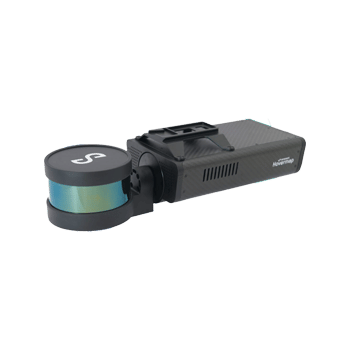
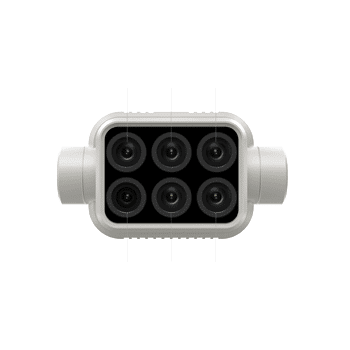

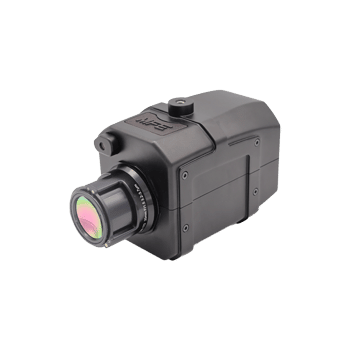
MFE INFRARED TRAINING
MFE Inspection Solutions offers comprehensive infrared training courses for companies looking to expand their service offerings with infrared technology. We provide lessons for camera operation, heat transfer, thermal science and much more.
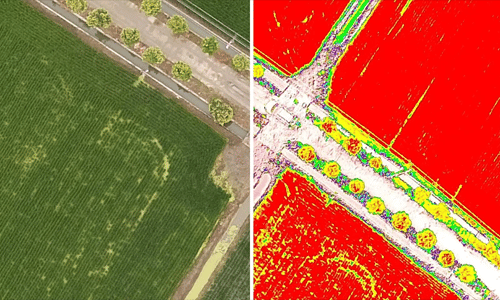
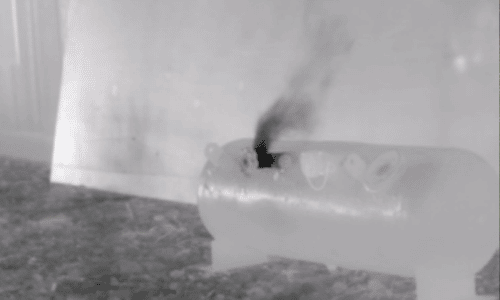
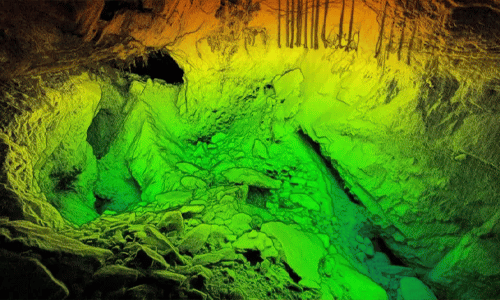
MFE TRAINING COURSE INFORMATION
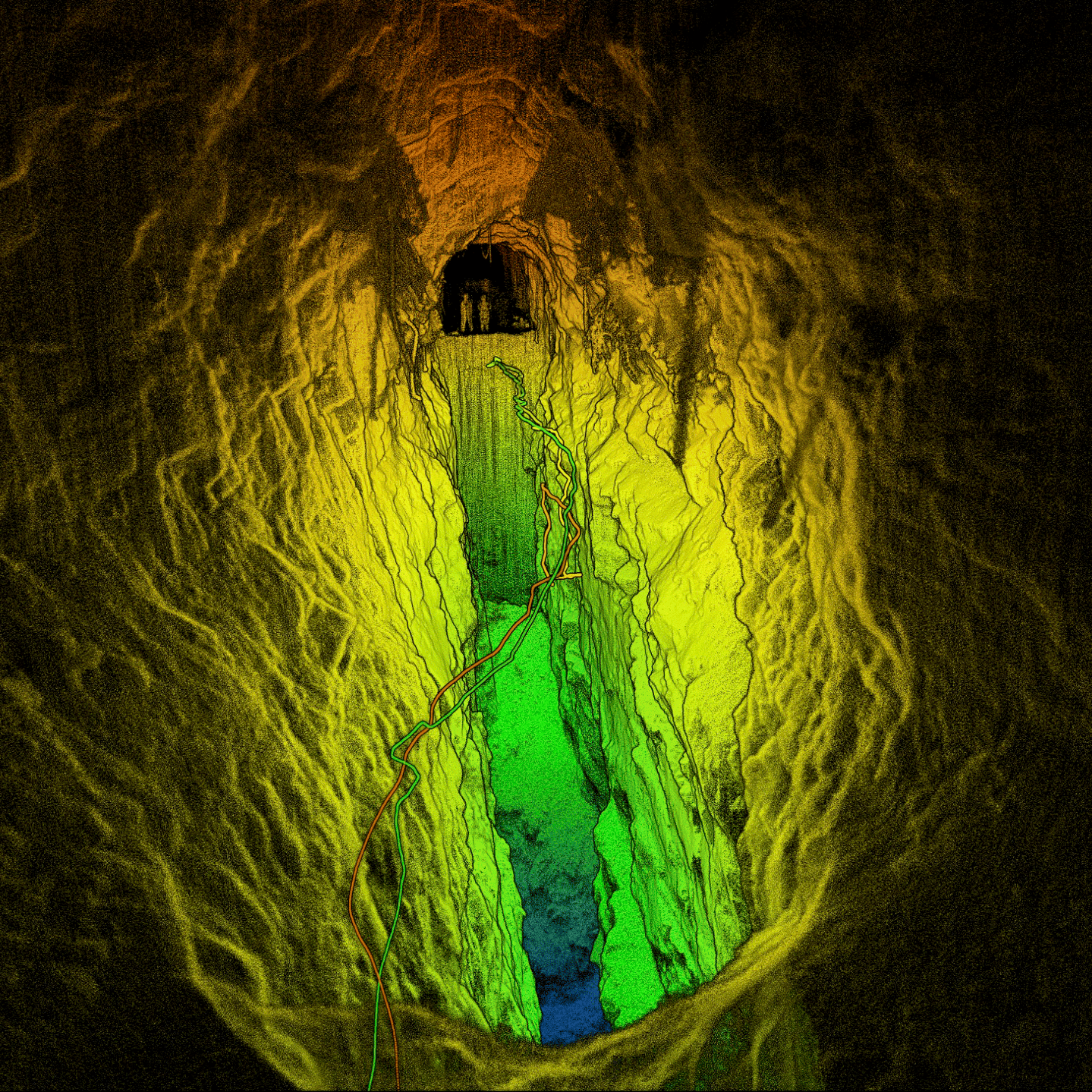
Infrared Course Benefits
- Learn the core concepts of heat transfer and how it impacts both imaging and temperature measurement.
- Review thermography best practices including factors that impact measurement accuracy, the required conditions for a successful inspection, and important safety considerations.
- Analyze thermal images, prioritize anomalies, and create simple reports using the latest infrared inspection software.
- Discover how to take simple temperature measurements of targets by learning the fundamentals of emissivity and reflectivity.
- Learn the fundamentals of thermal imaging for reliability maintenance, building envelope analysis, and roof moisture applications. No previous experience necessary!
- Develop IR camera operation skills that are essential for collecting quality data with your thermal imager.
- Gain experience with hands-on exercises that build your foundational knowledge of camera operation while re-enforcing the concepts of heat transfer that are taught throughout the week.
Required Course Materials:
- IR Camera- Students will be required to complete various labs & exercises throughout the duration of the course.
- Laptop- Certification Examinations will be administered electronically. Tablets are also acceptable.
- IR Reporting Software- Please have the software installed prior to class. The software can be used to assist with many of the camera lab exercises.
- Accessories-Extra Batteries, charger cords, etc.
Please bring an IR camera to class if you have one. Cameras are not provided during the training course. If you do not have access to a camera you can rent one through MFE Inspection Solutions at a discounted rate.
Tuition
A registration fee of $2,200 USD includes course instruction, course materials, breakfast, and lunch each day. Please note that prices may vary for courses conducted outside the continental U.S.; please confirm your price with your local MFE Representative.
Certification
- No previous thermography experience or IR camera is required.
- Students who complete all training course requirements receive a Level I Infrared Thermography Certification and a wallet ID card.
- Level I learning objectives, contact hours, and written exams are based on requirements outlined by ANSI/ASNT CP-105 and CP-189 of the American Society for Non-Destructive Testing.
- ITC Certification is the gold standard qualification within the thermography industry and exceeds the requirements of international standards.
Class Hours:
Day 1: 8AM – 5PM
Day 2: 8AM – 5PM
Day 3: 8AM – 5PM
Day 4: 8AM – 2PM
The Level I Electrical Thermography certification training course is designed for new infrared camera owners and practicing thermographers seeking specialized training on electrical thermographic inspections. The course will provide
fundamental training on camera operation, heat transfer, and thermal science, along with application discussions and examples focused on inspecting commercial electrical systems. Attendees who complete all training course requirements will receive an ITC Level I Infrared Thermography Certification.
Training Course Benefits
- Introduction to thermal imaging and measurement systems for electrical applications. No experience in thermography is necessary.
- Collect quality data and measure temperatures accurately by compensating for the effects of emissivity, reflected temperature, and other critical parameters.
- Interpret thermal images and make informed decisions by applying heat transfer and measurement concepts learned in class.
- Avoid costly mistakes – learn to distinguish between hot spots and reflections, direct vs. indirect readings and qualitative vs. quantitative thermography.
- Discuss the use of infrared windows, their placement and installation, and how to properly compensate for transmission loss using the cameras and software.
- Review severity criteria used for electrical inspections.
- Review safety considerations when performing electrical inspections.
- Challenge yourself with lab exercises that closely simulate real-world infrared applications.
- Discuss the application of thermal imaging for inspecting and diagnosing indoor and outdoor electrical equipment:
– Approaching a facility inspection; where to start and what to look for.
– Tools for data acquisition and structuring surveys.
– How to apply thermal imaging when inspecting switchgear, MCCs, breakers, transformers, bus ducts, conductors, cables, motors, bearings, solar panels, outdoor utilities, and other electrical equipment.
Required Course Materials:
- IR Camera- Students will be required to complete various labs & exercises throughout the duration of the course. You may also rent one. Learn more
- Laptop- Examinations will be administered electronically. Tablets are also acceptable.
- IR Reporting Software- Please have the software installed. The software can be used to assist with many of the camera lab exercises.
Tuition
A registration fee of $2,200 USD includes course instruction, course materials, and certification. Please note that prices may vary for courses conducted outside the continental U.S.; please confirm your price with your local ITC course agent.
Certification
Certification Courses are developed in accordance with CP-105 and SNT-TC-1A guidelines published by ASNT (American Society of Nondestructive Testing). ASNT is a globally recognized developer of qualification and certification standards for NDT personnel.
- Students who complete all training course requirements receive a Level I Infrared Thermography Certification.
- This course is eligible for 16 NETA Continuing Technical Development Credits (CTDs)
Class Hours:
Day 1: 8AM – 5PM
Day 2: 8AM – 5PM
Day 3: 8AM – 5PM
Day 4: 8AM – 5PM
Our Practical Thermography, Level II Certification class is for Level I certified thermography professionals seeking to broaden their knowledge of infrared. This course focuses on strengthening and improving your imaging and temperature measurement skills. Those who successfully complete the course requirements will receive a Level II Infrared Thermography Certification from ITC.
Infrared Training Course Benefits
- Review Level I training concepts that will bring you up-to-date with the latest IR camera knowledge and imaging techniques used by thermography professionals.
- Master your ability to analyze thermal images and create infrared reports by learning advanced camera operation and temperature measurement concepts.
- Broaden your knowledge of heat transfer theory that will enhance your ability to analyze thermal anomalies across a variety of applications and conditions.
- Hone your temperature measurement skills by seeing what factors impact accuracy including advanced radiometry concepts of emissivity and reflectivity.
- Discover how professional thermographers approach an inspection and what types of information are most important to include in an infrared report.
- See how to better define severity criteria when prioritizing thermal anomalies across a variety of applications.
- Learn the required elements of a written practice that is used to guide the training and certification needs of thermographers in your program.
- Challenge yourself with practical hands-on camera exercises that will further your ability to measure temperatures and diagnose critical problems.
*Please Note*- Online Course currently available for United States & Canada only, due to advance shipment of course materials & content. Separate sessions will be scheduled for US & CA. Please contact us for details.
Required Course Materials:
• IR Camera– Students will be required to complete various labs & exercises throughout the duration of the course.
• Laptop– Certification Examinations will be administered electronically. Tablets are also acceptable.
• IR Reporting Software- Please have the software installed prior to class. Software can be used to assist with many of the camera lab exercises
• Accessories-Extra Batteries, charger cords, etc.
Please bring an IR camera to class if you have one. Cameras are not provided during the training course. If you do not have access to a camera you can rent one through MFE Rentals at a discounted rate. If you are attending the course with a colleague or friend, you may share a camera however we recommend no more than three students per IR camera.
Tuition
A registration fee of $2,200 USD includes course instruction, course materials, breakfast, and lunch each day. Please note that prices may vary for courses conducted outside the continental U.S.; please confirm your price with your local ITC course agent.
Certification
Level II learning objectives, contact hours, and written exam are based on requirements outlined by ANSI/ASNT CP-105 and CP-189 of the American Society for Non-Destructive Testing.
Accreditation
InterNACHI: 32 CEUs
NETA: 32 Continuing Technical Development Credits (CTDs)
ITC: 24 Certification Renewal Credits
Prerequisites
Level I Thermography course certification is required.
The ITC sUAS Level 1 Thermography Certification course is geared to individuals or corporations wanting focused training on aerial IR inspections and applications. This 4-day course is designed for the sUAS pilot who needs the background, skills, and knowledge to capture and interpret thermal images properly. Topics include infrared science, a solid basis in a wide variety of popular applications, sUAS safety, and how to select the proper camera and lens combination for your needs. Learn from the leaders in the industry how the cameras function, as well as how to get the best image from your camera. In addition, this course will show you the robust application of thermography from the air and the limitless applications surrounding this exciting new platform. Attendees who complete all training course requirements and a thermography field assignment will receive an sUAS Level 1 Infrared Thermography certification that industry professionals recognize.
Course Benefits
- Apply thermography theory, science, and techniques, including interpretation of radiometric survey results specific to aerial applications.
- Learn how to plan your flight’s altitude and range-to-target to get accurate thermal information about your target of interest.
- Familiarize yourself with sUAS anatomy and inspection points.
- Understand sUAS IR solutions and specifications to make informed decisions as to what platform and IR cameras are best for your application.
Required Course Materials
- Laptop- Examinations will be administered electronically. Tablets are also acceptable.
- IR Reporting Software- Please have the software installed. IR Reporting Software can be used to assist with many camera lab exercises.
Tuition
A registration fee of $2,200 USD includes course instruction, course materials, and certification. Please confirm your price with a local MFE representative.
Skilled users of the new FLIR GF-Series cameras and the legacy GasFindIR camera can inspect over 3,000 connections per day. Current sniffer technology is limited to about 500 connections per day.
Students will learn how to set up and operate FLIR optical gas imaging cameras. They will learn how to optimally adjust their cameras for varying environmental conditions to find gas leaks. Students will learn under what environmental conditions gas leaks are most easily found, somewhat easy to find, and difficult to find.
This class will teach students which gases can be found with FLIR optical gas imaging cameras and leak size limitations. Some basic infrared theory and heat transfer concepts will be introduced to build a strong foundation.
Lab and/or field practice in finding leaks is a key part of this class. Students will learn by doing and by observing numerous videos of leaks and what to look for including thermal contrast, gas plume motion, distance limitations, etc. Basic inspection procedures will be covered including equipment checkout, route planning, permitting requirements, safety practices/equipment, and reporting concepts.
Upon successful completion of the course, students will receive a training certification for optical gas imaging camera usage.
Course Objectives
- Explain the regulatory framework for optical gas imaging
- Describe the OGI certification process
- Demonstrate proper operation of a FLIR GasFindIR HSX or FLIR GF-Series infrared camera
- Explain the basics of thermal science
- Explain how optical gas imaging is a combination of art, science, technique and interpretive skills
- List the basic safety practices for doing an OGI inspection
Required Course Materials:
- IR Camera- Students will be required to complete various labs & exercises throughout the duration of the course.
- Laptop- Certification Examinations will be administered electronically. Tablets are also acceptable.
- IR Reporting Software- Please have the software installed prior to class. The software can be used to assist with many of the camera lab exercises
- Accessories-Extra Batteries, charger cords, etc.
Please bring an IR camera to class if you have one. Cameras are not provided during the training course. If you do not have access to a camera you can rent one through MFE Inspection Solutions at a discounted rate.
Tuition
A registration fee of $2,200 USD includes course instruction, course materials, breakfast, and lunch each day. Please note that prices may vary for courses conducted outside the continental U.S.; please confirm your price with your local MFE Inspection Solutions Representative.
Class Hours:
Day 1: 8AM – 5PM
Day 2: 8AM – 5PM
Day 3: 8AM – 5PM
INFRARED CLASS LOCATION
MFE ENTERPRISES INC
6025 Fairmont Pkwy, Pasadena, TX 77505
